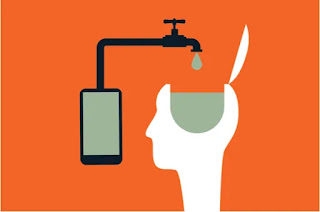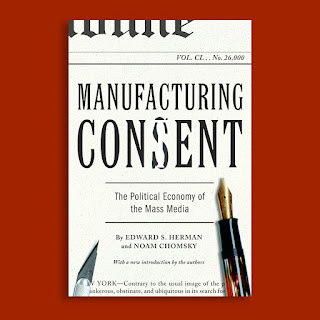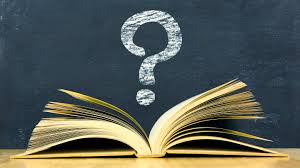Cultural studies is an interdisciplinary field that explores how culture creates and shapes everyday life, identities, power structures, and societal norms. It examines the ways in which cultural practices, texts (like media, literature, art), and institutions influence and are influenced by social, political, and economic systems. Cultural studies often focus on issues such as race, class, gender, sexuality, and ideology, analysing how these aspects are represented and understood in different societies. Emerging from the work of theorists like Stuart Hall and the Birmingham School in the mid-20th century, cultural studies integrates methods from sociology, literary theory, anthropology, and history, among others. It seeks to challenge dominant ideologies and highlight marginalised voices, emphasising the role of culture in both maintaining and challenging power relations.
This blog is a thinking activity assigned by Barad Sir based on media, elite corporations owning media, and what it means to be a truly educated person. I’ve answered the question based on the Teacher’s blog which you can check out here - Media, Power and Truly Educated People.
Media and Power
1. How does the blog articulate the relationship between media and power in contemporary society? Provide examples from the blog and your own observations.
Before we begin to understand the relationship between media and power in contemporary society, it is important to understand what is power and how it functions. Power is basically an entity that is always there. We cannot get rid of it. It is not inherently good or bad. How the power is used depends on the person welding it. The definition given here is:
“Power is the ability to make others do what you would have them do.”
This definition, however, is not entirely correct because power is much more nuanced than that. There are six civic arena of power. They are: Physical force, wealth, state action, social norms, ideas, and numbers. There are three laws on how power operates:-
1. Power is never static
2. Power is like water
3. Power compounds
For further information on this topic check out this video -
The relationship between power and media is explored by Edward Herman and Noam Chomsky in their book “Manufacturing consent”. In this, they argue that media manufacturers our consent. They are dominated by the elites in power, and they tell us what powers want us to know and believe. Media works as a propaganda machine and
“Democracy is staged.”
There are five filters through which this is achieved. They are as follows:-
1. Media ownership:-
Media outlets are owned by large corporations that have their own interest. The content produced by these media houses reflects the corporate priorities. These big corporations only care about profit and they will push whatever guarantees this profit. Critical journalism and presenting the truth is no longer a priority for such media outlets. We can see an example of this in literary works such as “1984”, where the Party owned the media and only the reports that favour the party were allowed to be produced.
2. Advertising money:-
Media companies make a lot of money from advertisers and so they avoid content that could offend their sponsors. We should also remember that media is not only selling the products to the consumer. They are also selling advertisers a product. That is the audience consuming such media. They have transformed individuals from “people” to “consumers”.
3. The Media elite:-
The system of media and it being controlled by the elites is such that journalism cannot challenge power. This system encourages complicity. The media elites have an overwhelming influence on the narratives through which the news is presented.
4. Flack:-
When these media outlets step outside of accepted narratives they face the flack machine. When the story is inconvenient for the powers, they start discrediting the sources, trashing stories, or diverting the conversations altogether. They face many kind of pressures from the elite in the power and have to stay settled in that system.
5. The common enemy:-
The fifth filter says that to manufacture consent, media often creates an enemy. This is a bogeyman to fear. Targets like these help to keep the public in check. We can see this in George Orwell’s “Animal farm”. Even after the farmer was defeated and driven out of the farm, his name is used again and again by the Pigs to scare the other animals and ultimately make them follow the instructions of the masters. In the poem, “Waiting for the Barbarians”, by C. P. Cavafy, we see a similar idea.
In this manner, media is subtly controlled by the powerful people and used as a tool to manage the mass. To know more about it, check out the video given below:-
Role of Education
2. The blog discusses the qualities of a "truly educated person." How does this concept challenge or align with traditional notions of education? What qualities do you think define a truly educated person today, especially in relation to media literacy?
In the above given blog, the qualities of “truly educated person” are discussed by Noam Chomsky. You can see that video given here -
Chomsky uses the concept given by German educator Wilhelm Von Humboldt, to describe a truly educated person. According to him, the core principle and requirement of a fulfilled human being is the ability to enquire and create constructively, independently without external controls. He takes this concept further by describing qualities of a truly educated person given by another MIT professor. It is to enquire and create on the basis of the resources available to you, which you have come to appreciate and comprehend. In short, a truly educated person knows where to look, how to look and how to formulate serious questions.
These qualities, actually challenge the traditional notion of education. In traditional classrooms, there is a passive role of students. They have limited opportunities to actively engage in their learning process, ask questions or participate in collaborative activities. This hinders their capabilities of critical thinking and questioning. For a truly educated person, it is necessary to develop critical thinking and inquire more. As Noam Chomsky said:
“It is not important what we cover in the classroom, it is important what you discover.”
In today’s world, this ability to enquire and search for the truth is of utmost importance. From the book, “Manufacturing consent”, we find out that we cannot trust the media blindly because it is controlled by the very people it should oppose. There is a thin line between truth and propaganda. To survive in this environment, questioning the reports and searching for the real situation is essential. The refusal to believe everything blindly and the curiosity to know the reality is what defines a truly educated person.
Cultural Practices
3. Media often shapes cultural norms and practices. Discuss how media representation influences cultural identities, specifically marginalised groups, as per the blog’s argument. Can media also act as a tool for resistance against dominant power structures?
Marginalised groups are normally unrepresented in mainstream media. But when they are presented, there are high chances of misinterpretation. This is happening because the media is controlled by elites. Media ownership by large corporations means that their values and priorities would align with these corporations, which are often dominated by majority groups. Moreover, in this system, big corporations only care about profit. Critical journalism takes second place and nobody cares about faithful representation of marginalised people.
There is also a possibility that marginalised groups would be target of media and elites to maintain social control. They are always looking for a common enemy, an “Other” that can be vilified for their own benefits. This means that such groups would be framed as threats to social order. One very prominent example of this is the treatment of Jews in Germany during the rule of Nazis. They were villainised by the authorities of the time to scare the majority public and justify their own atrocities.
Media is a way to reach a lot of people altogether and this makes it seem like a powerful tool for resistance against dominant powers. But we have to remember that the same dominant powers control the media. They influence the narratives and when the story is inconvenient for the people in power, they can avoid these topics by this discrediting sources, trashing the stories, or diverting the conversation altogether. They can even pressurise the media reporting it through lawsuits or negative campaigns. This pressure can make media outlets more cautious about reporting things that challenge the status quo. We can see the power of these corporations through the example of NDTV News channel and how it was taken over by Adani enterprise.
Recently, however, there are many instances where people have taken the help of social media to oppose the powers and talk about the injustice happening with them. In India, we can see this in the form of independent journalists like Ravish Kumar and YouTubers like Dhruv Rathee. A few months back, activist Sonam Wangchuk, who was on a fast, made videos on social media to spread awareness about the situation of Ladakh. If you’d like to know more about it, then check out this video -
Critical Media Consumption
4. Reflect on your media consumption habits. How does media influence your worldview and daily choices? How can a critical approach to media consumption contribute to becoming a truly educated person?
Media heavily influences are worldview and daily choices, but it is done so subtly that we are not even aware about it. As we discussed earlier, media serves the interest of powerful elites and provides a biased reflection of reality. When we use media, it slowly guides our decisions and turns our thinking pattern into what serves the powerful people’s interests.
Media filters the news and narratives and shapes our understanding of key issues like politics, social justice, war, and economics. By selecting which stories to tell and how to tell them, media defines what is considered important and how events are interpreted. We can often see this in how the government policies are presented to people in such a manner that the public becomes supportive of those policies, even if they are harmful to them.
Through constant repetition, a technique that is prevalent in social media today, certain ideas and ideologies are normalised. For example, media often reinforces consumerism by promoting material success and luxury lifestyles. This influences how we define success and happiness.
Media has become an inescapable part of our lives and influences what we buy, our political decisions and our social choices. At this time, it is more necessary than ever to have a critical approach towards media. We have to think deeply if our decision is taken by our careful thoughts or are they manipulated by the media elite? An inquiring approach to all the information that we consume through media will surely lead to becoming a truly educated person.
Words - 1848
Images - 8
Videos - 4
References -
Barad, Dilip. “Cultural studies: Media, Power, and Truly Educated Person.” Blogger, 22 Mar. 2017, blog.dilipbarad.com/2017/03/cultural-studies-media-power-and-truly.html. Accessed 2 October 2024.








Comments
Post a Comment